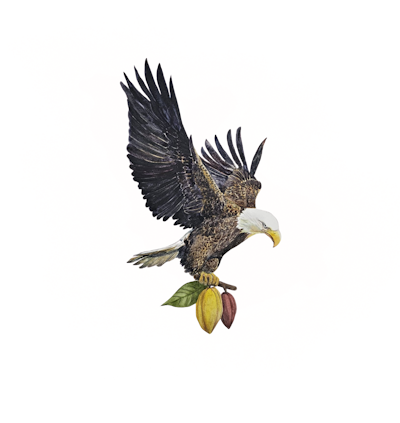
Over the years it seems that “Big Chocolate” (by which I mean the network of major chocolate brands, manufacturers, cocoa traders and processors) has done an amazing job of innovating the category from an occasional treat to an affordable staple for millions. Against this backdrop it would seem logical to expect cocoa to be a profitable crop to farm. Sadly, the reality can be very different with independent analysis regularly suggesting in fact that the future supply of cocoa looks problematic due largely to impoverished farmers. The craft chocolate and Ceremonial Cacao sector, however, looks to have the potential to help shift the dial towards a more viable and sustainable model for cocoa farmers.
So what’s the problem? Research suggests that of the 5-6 million cocoa farmers in the world, about 2 million live under the poverty line and do not earn enough money to even support their livelihoods (IISD Cocoa Prices and Sustainability, Nov 2022). This also has a knock-on effect for the majority of the 40-50 million people worldwide who depend on the industry for their livelihoods, most of whom are involved in the growing and harvesting stages in the origin countries. One of the main reasons for this is the simple imbalance between supply chain actors; millions of farmers have to sell to a very limited supply chain of traders, processors and branded chocolate manufacturers who dominate the buying side of the market. The implication of this can be seen when we view estimates of the respective value created along the supply chain. The farmers’ share of margins generated by a tablet of dark chocolate in 2018 was estimated at being only 6-7% (FAO & Basic, 2020). This compared with traders/primary processors at 7-8% and manufacturers/retailers at 80-90%. Evidence suggests that this imbalance is a hurdle to the sustainability of the crop. Perhaps matching the business interests of “big chocolate” with the livelihood interests of cocoa farmers is proving to be an impossible challenge to overcome ?
The craft sustainable chocolate sector would seem to represent an alternative path, however, especially when it is produced at source, from bean to bar. Importantly it allows farmers and consumers to be so much more connected. A much greater share of the consumer’s spending power inevitably flows back to the farmer/processor at origin and the farmer’s broader community. Greater onshoring of value-added processes like this as well as more traceability of the ingredients also allows the ‘where’ and ‘how’ cocoa is grown to become part of the consumer experience, enjoyment and eventually brand preference. After all, great chocolate will always taste even better when its doing good for the planet and people that made it possible.
Patrick and I have worked closely together on supplying sustainable ingredients to the food industry in the past. So, when I listened to the story about what he and Vivienne have embarked on with Saoró, I was very impressed. I’m now a convert to a daily ceremonial cacao fix thanks to you. Good luck with making it a success for you and all the farmers that make this happen!
From Andy Worrall, CEO of New Canopy Sustainable Ventures, a UK company helping to accelerate more sustainable supply chains in tropical agriculture through management consultancy and investment.
—
by Andy Worrall



